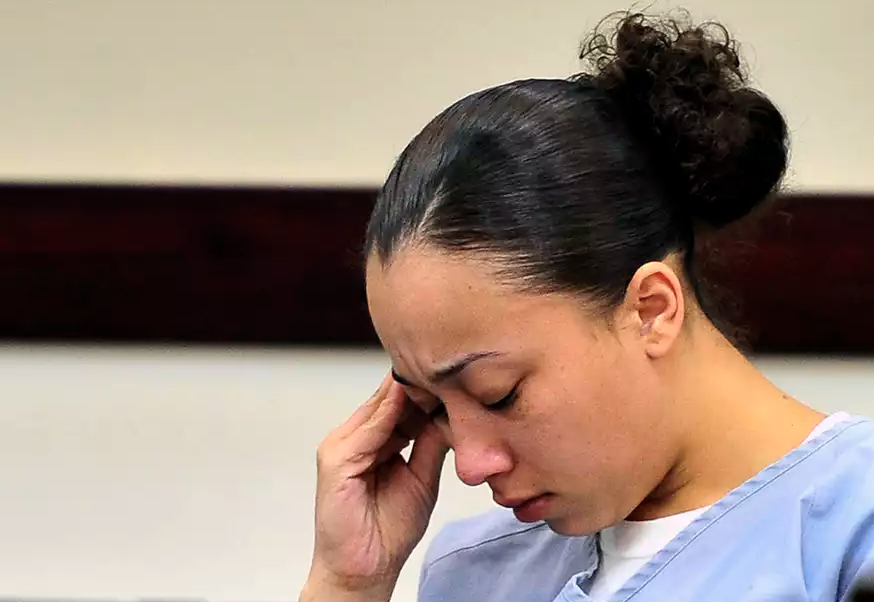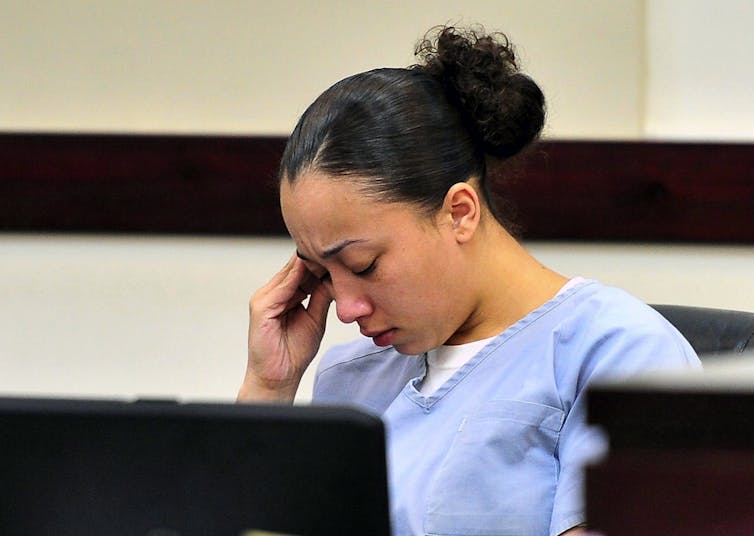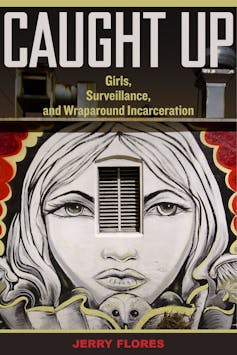
TN Governor Haslam grants clemency to Cyntoia Brown
Video Courtesy of WBIR
TN Governor Haslam grants clemency to Cyntoia Brown
Tennessee Governor Haslam has granted clemency to Cyntoia Brown, who was serving a life sentence in prison for a murder she committed at 16-years-old.
ORIGINAL STORY BELOW
The Tennessee Supreme Court recently confirmed that Cyntoia Brown must serve 51 years in prison for shooting and killing a man in 2004 when she was just 16.
News stories and social media have widely reported and shared Brown’s story. Many have compared her harsh sentence to lesser ones for white juveniles since the state of Tennessee first tried her case more than 10 years ago. The latest decision was the result of an appeal to her original sentence, submitted because it is now unconstitutional to sentence juveniles to life in prison.
Johnny Allen, 43, solicited sex in exchange for money from Brown, who was 16 at the time. Brown argues that she feared for her life and thought Allen was going to shoot her, so she shot and killed him in self-defense, according to court records. Despite these details, the state of Tennessee still tried her as an adult and convicted her of first-degree murder.
There is so much wrong about this story, which underlies the treatment of young, poor girls and women living in unstable situations. Many of these youth are regularly exposed to drugs, violence and multiple forms of trauma.
A 2011 PBS documentary about Brown’s life and trial revealed the challenges Brown faced in her young life. The documentary shows Brown, dressed in an orange jumpsuit, hair pulled into ponytails, waiting to hear from a judge to see if she would be tried as a juvenile or adult.
Her mother was raped at age 16 by an older man and she was given up for adoption. Her adoptive father routinely inflicted physical abuse on her. At 15, she ran away and met a 23-year-old drug dealer, “Kut Throat,” who raped her and forced her into sex work.
After a disagreement with him, she left and went to a local burger place. That is where she met Allen, who asked if she was looking for “action” — meaning was she selling sex? After bartering, they agreed on $150 for the “exchange.” They went to his home, ate, had sex and remained in his bed. Allen boasted about being a former soldier and said he had multiple guns in his home. He grabbed Brown and rolled over. She feared for her life, grabbed a gun and shot him.

(AP Photo/The Tennessean, Jae S. Lee)
The recent ruling seems even harsher in light of the fact that the United States Supreme Court ruled it unconstitutional to give juveniles mandatory life sentences without parole. According to the Tennessee Supreme Court, Brown’s sentence falls within the parameters of the constitution because she is eligible for parole once she turns 67.
A cycle of incarceration
Brown’s story mirrors other marginalized young women of color living in the United States. I have conducted fieldwork with 50 incarcerated Latinas, age 12-19, in Southern California and wrote a book about their lives: Caught Up: Girls, Surveillance and Wraparound Incarceration.
The girls I spoke with often experienced abuse in their homes. They ran away to escape the abuse. They spoke about being left no choice but to engage in high-risk behavior, including shoplifting, hitchhiking or soliciting. They were vulnerable prey for older predators who began “relationships” with them, exchanging sex for access to clothes, food and shelter. Many like the ones I spoke with end up behind bars.
Tragically, the experience of marginalized girls in the U.S. and Canada are eerily similar. The tragic stories of Cyntoia Brown and Tina Fontaine, a young Indigenous girl whose body was found in the Red River on Aug. 17, 2014, have parallel issues despite the roughly 2,000 kilometers between Nashville and Winnipeg where they lived.
A recent study by the Vera Institute found that approximately 66 per cent of incarcerated women in the United States are women of color — and 86 per cent of them have experienced sexual violence, often at the hands of an intimate partner or caretaker. Additionally, 79 per cent of these women care for children. Almost all incarcerated women included in the Vera Institute study lived in poverty.
These findings are confirmed by other classic and contemporary research done with incarcerated women. What is staggering is that 82 per cent of women are incarcerated for non-violent offenses like shoplifting or using drugs.
In short, inequality, a lack of essential services and supports geared toward women help contribute to tragedy for so many poor, young women.
Ironically, when girls fight back against abuse they are often punished by authorities or others in power. If they run away and are caught by the police they are arrested, incarcerated or often returned to the very home where they experienced abuse. They fight back against the abuse of friends, family or boyfriends they often face more mistreatment or end up behind bars.

Once incarcerated, they face a slew of interpersonal and institutional forms of abuse. For example, research shows that once young women are incarcerated they face multiple forms of violence behind bars. This includes having to fight other incarcerated individuals, experiencing violence at the hands of guards and being obligated to endure degrading strip searches. Additionally, there has been historical patterns of corrections officers sexually abusing incarcerated women.
This puts young women in a difficult position and sheds light on the immense gap in services needed. Research indicates that access to dependable and free transportation to shelters, and other supports, including outreach workers to make connections with them, are integral to young women leading healthy and productive lives.
Researchers, politicians and leaders need to address the root issues that hurt poor, young, women in jail. These issues include increasing poverty, abuse in the home, a lack of social services, inadequate education and the fact that many youth in the wealthiest countries like the U.S. and Canada still do not have access to three meals a day, a safe home, clean water and reliable transportation.
As others have accurately pointed out on social media this week, white men and women who commit crimes in the U.S. are given lighter sentences compared to people of color. Jeffrey Epstein, a 54-year-old accused of trafficking underage girls, received a 13-month prison term. Brock Turner raped an unconscious woman and was sentenced to six months in jail. Teen Ethan Couch ran over and killed four people and injured several others while driving drunk and received no jail time.
In contrast, Brown’s life is effectively ruined. Tennessee law has since changed, prompted by Brown’s case. That means minors can no longer be sentenced to life in prison. But that law does not apply to Brown, who must wait until she is 67 before she can go before a parole board.
While her future seems bleak, Brown continues to receive public support. The #FreeCyntoiaBrown campaign circulates on social media and the Women’s March is planning an event on Jan. 19, 2019, to show support for Brown and other survivors. The event is supposed to put pressure on outgoing Tennessee Gov. Bill Haslam who can grant her clemency with a shorter sentence.
It is time we stop punishing young women for defending themselves and address the real issues that lead young women into precarious situations.![]()
Jerry Flores, Assistant Professor, University of Toronto
This article is republished from The Conversation under a Creative Commons license. Read the original article.

